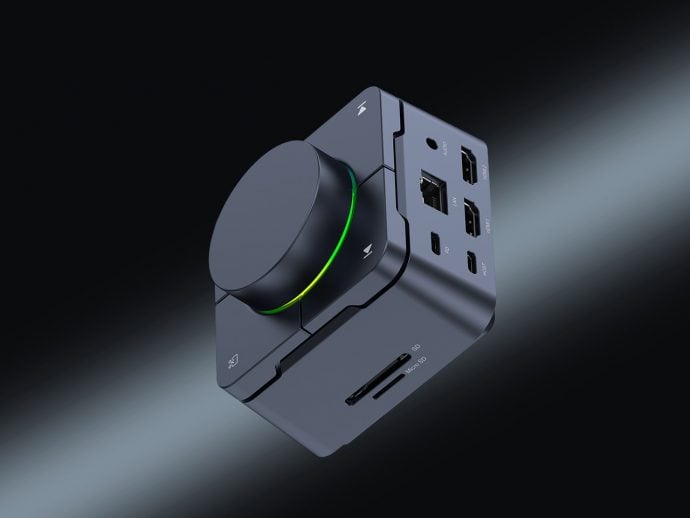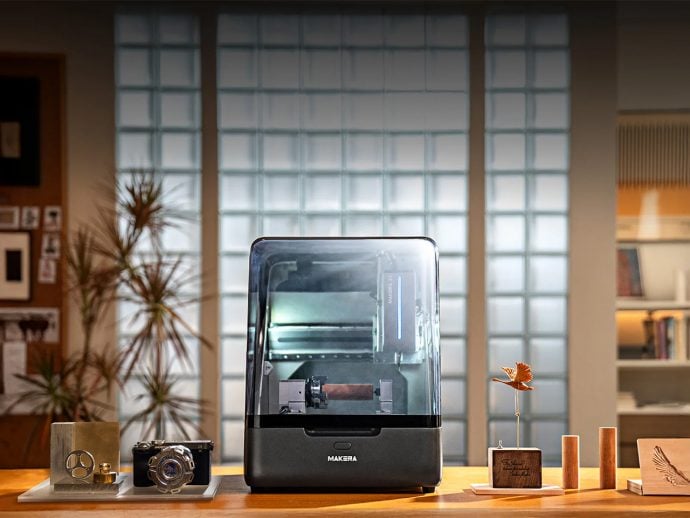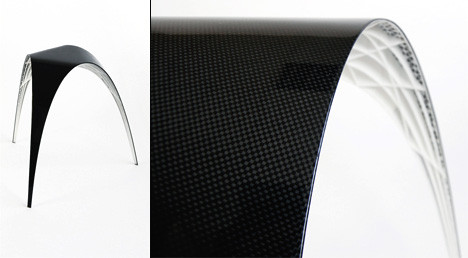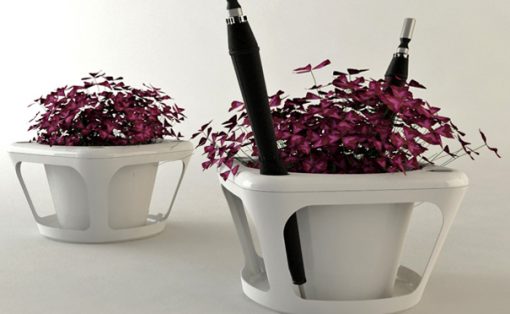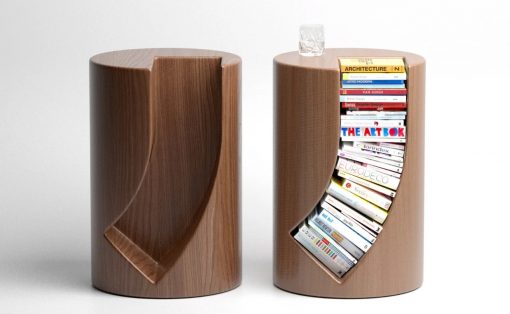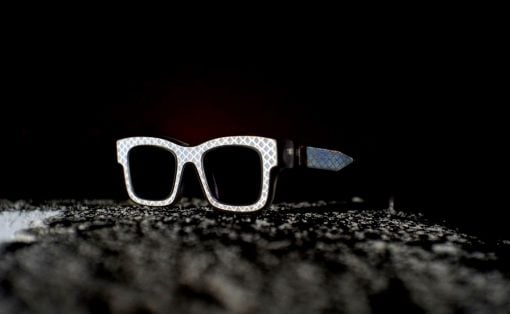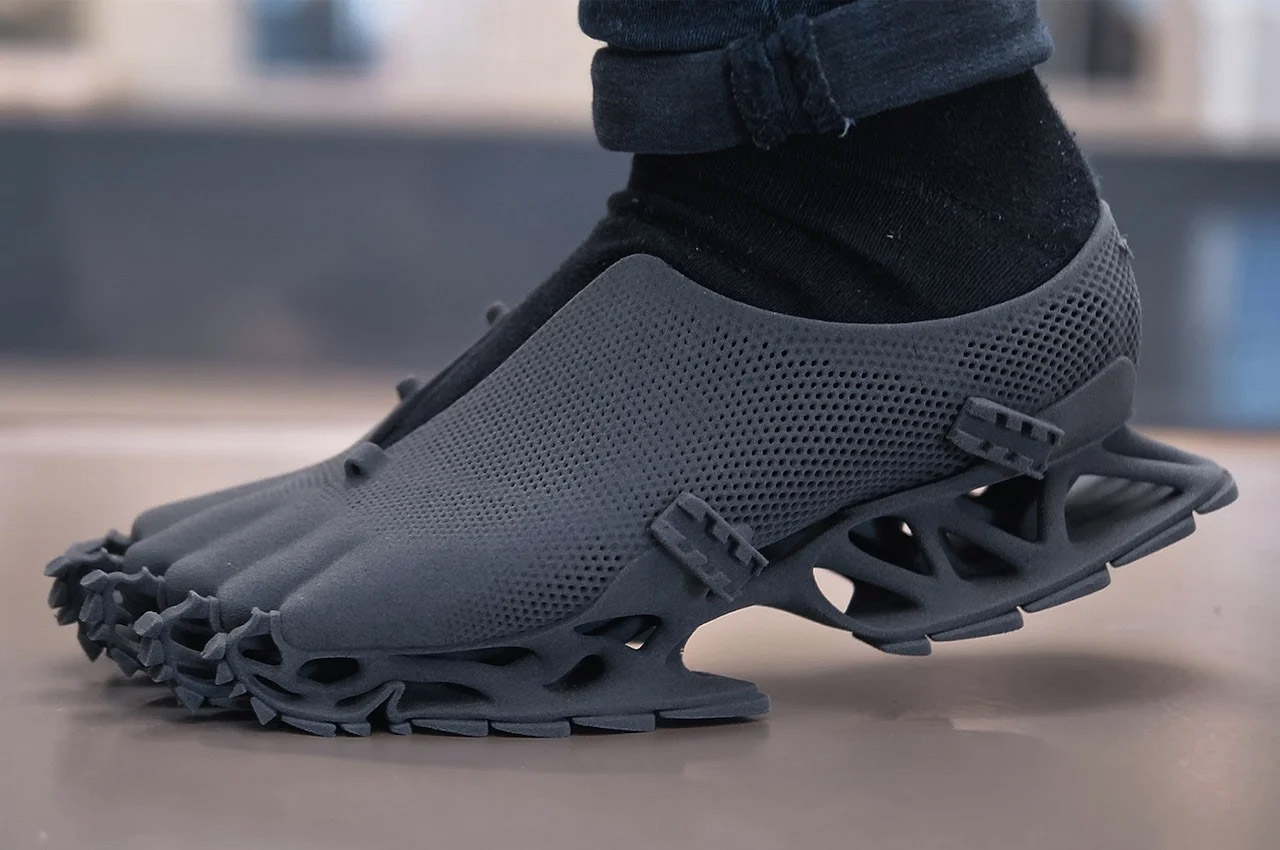
3D Printing is gaining more momentum and popularity than ever! Designers and architects all over the world are now adopting 3D Printing for the creation of almost all types of products and structures. It’s a technique that is being widely utilized in product design, owing to its simple and innovative nature. But designers aren’t employing 3D printing only to create basic models, they’re utilizing this technique in mind-blowing ways as well! From a 3D printed backpack constructed from recyclable materials to a pair of 3D printed shoes that’ll make you feel like Bigfoot – the scope of this dependable technique is unlimited! Dive into this collection of humble yet groundbreaking 3D printed designs!
1. The Cryptide Sneaker
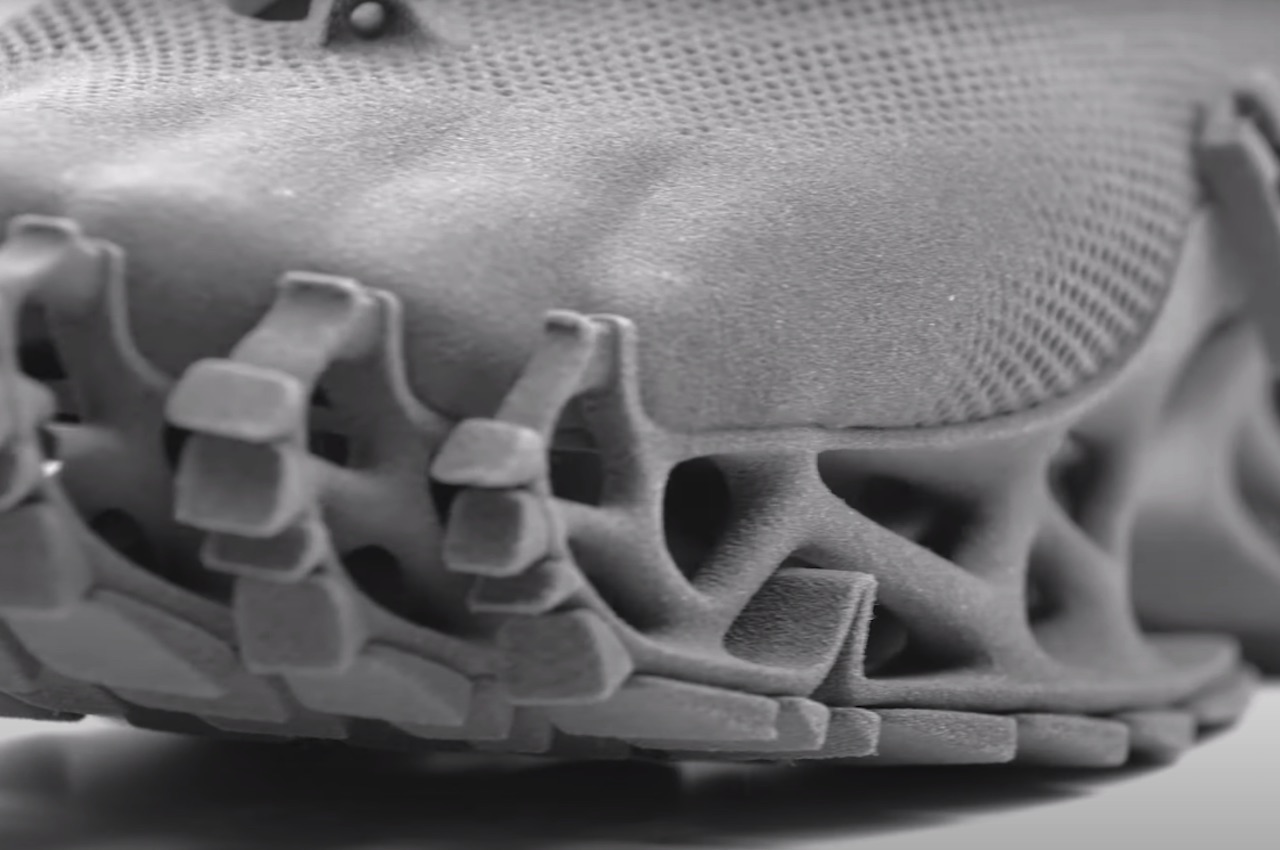
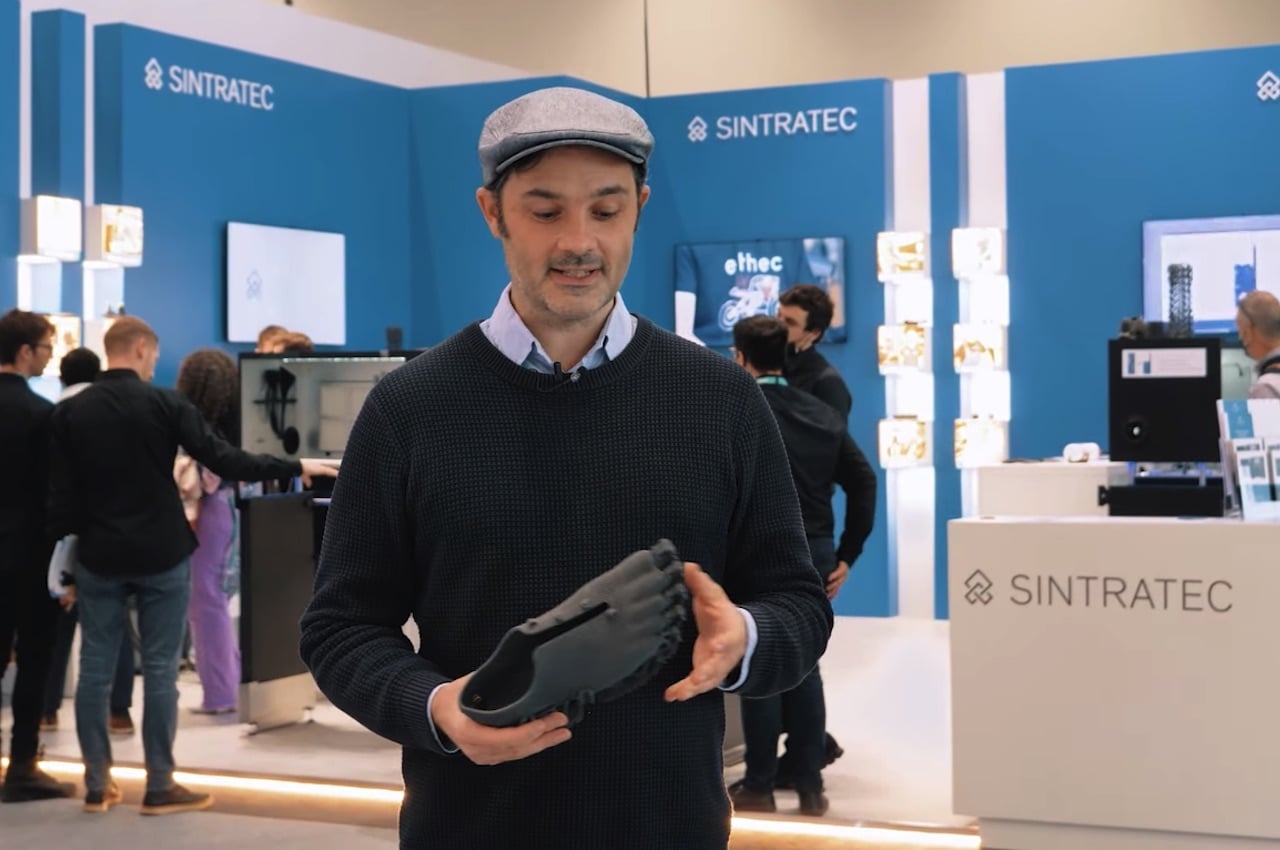
The Cryptide Sneaker was designed by Stephan Henrich for Sintratec. The German architect and designer came up with a pair of full 3D shoes meant to be laser sintered with a flexible TPE material. Using a Sintratec S2 System 3D printer, the shoes were formed and printed.
Why is it noteworthy?
The Cryptide features a sole with an open design. The designer said it was made possible by SLS production (Selective Laser Sintering) and a material called Sintratec TPE elastomer. Simply put, SLS is an additive manufacturing that takes advantage of a laser to sinter particles into a more solid 3D structure. Henrich and Sintratec worked together to bring the sneaker design into reality.
What we like
- The size and shape can adapt to the foot of the wearer
- They remind us of the Adidas Futurecraft 4D!
What we dislike
- They don’t rate high on aesthetics + style
- The shoes will leave freaky footprints
2. Angled Stands
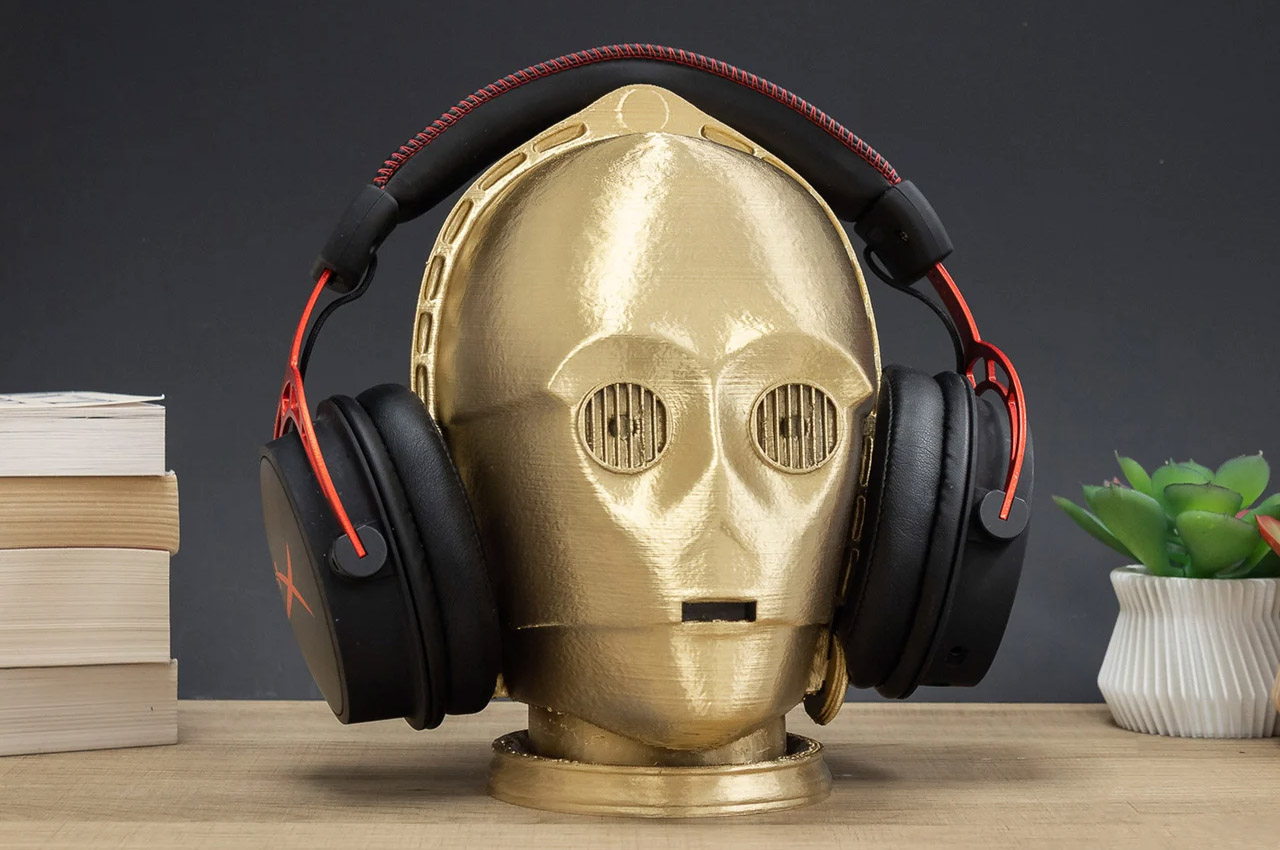
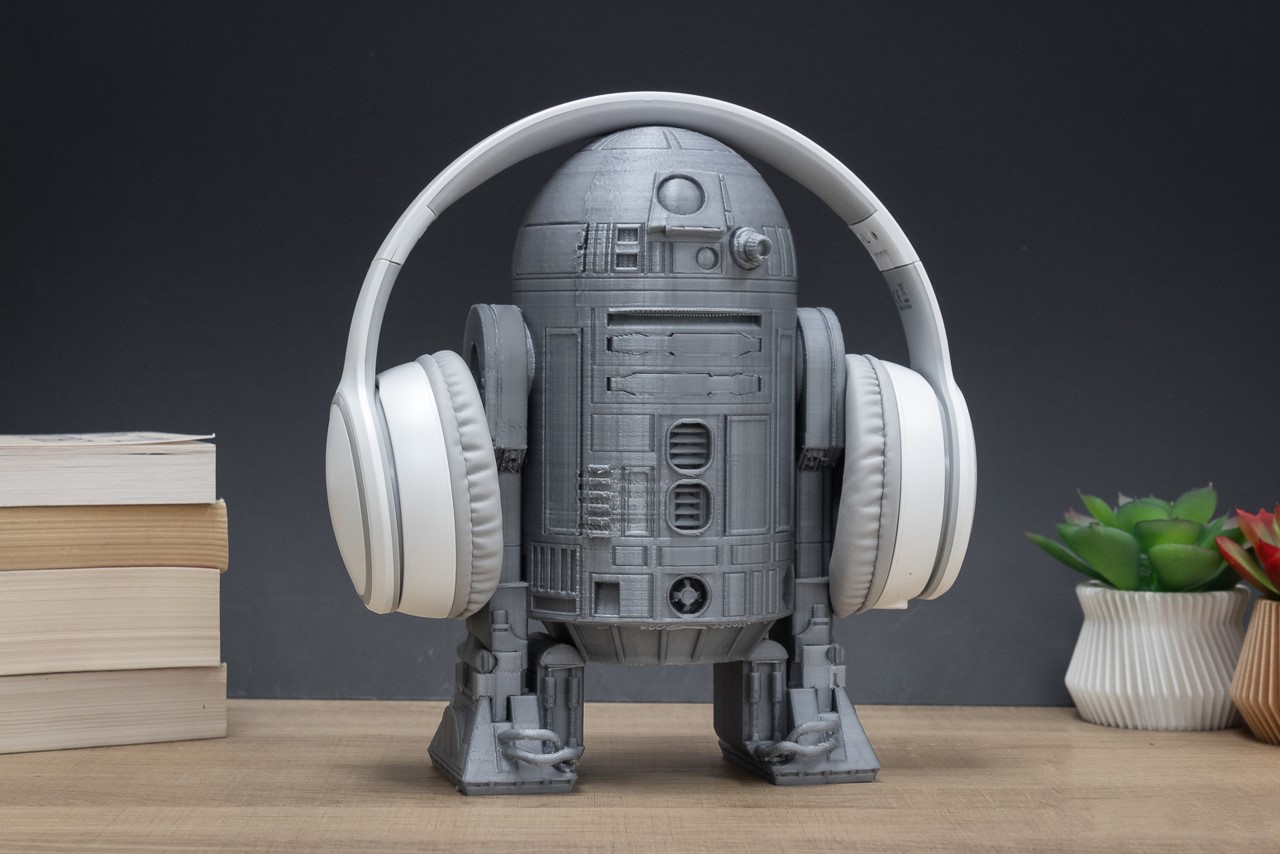
Designed to easily become the centerpiece of any geek’s table, these stands are 3D-printed pretty much to scale, and are designed to easily fit most standard headphones (and even VR headsets!)
Why is it noteworthy?
Although each headphone stand is 3D printed (and you can even see the lines on some of them), it also has a stunning amount of detail. Take for instance the Chewbacca headphone stand right below. This is because Angled partners with designers and artists to release new variants and models online. Artists create detailed models that get approved by Angled’s team based on sizing, proportions, and its ability to be printed without any flaws/errors. Once a design gets approved by the Angled team, it makes its way to their store and for every sale, the artist gets a commission.
What we like
- They can be customized and painted to make them all the more realistic
- Has stands that hold your Xbox or PS controllers
What we dislike
- No complaints!
3. Peugeot’s Storage Inserts
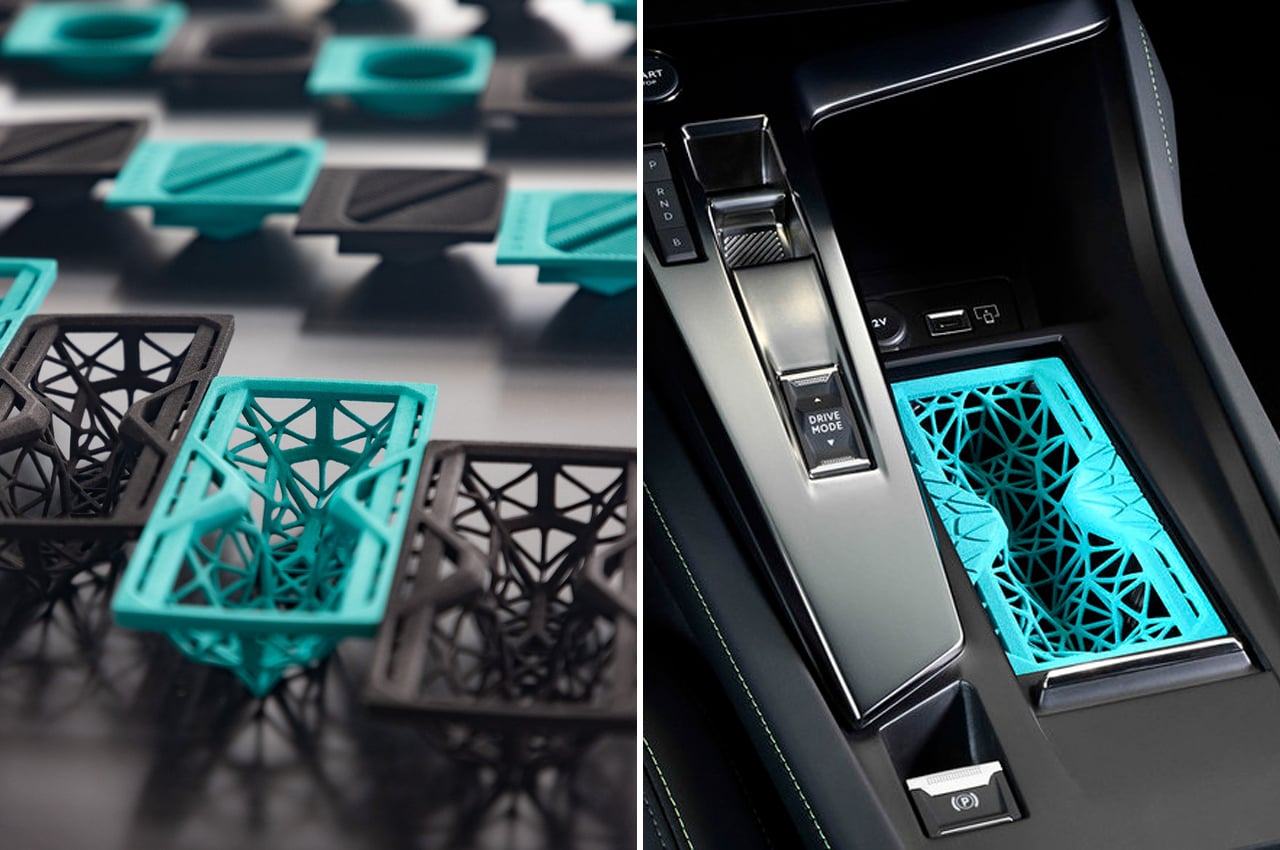

Peugeot has developed storage inserts for their new 308 models that are 3D-printed from a flexible filament using innovative 3D-printing technology. French automobile brand Peugeot is known for its catalog of unique, well-made cars. The new 308 model from Peugeot is an update on the brand’s 3008 SUV, the team of designers gave the new generation a smaller and sportier look.
Why is it noteworthy?
Starting with a new flexible polymer, Peugeot uses innovative 3D-printing technology to create sunglasses holders, cup holders, and phone/cardholders to fit into the 308’s center console. In collaboration with HP Inc., Mäder, and ERPRO, the Peugeot team used the new HP Multi Jet Fusion (MJF) 3D printing technology to format and produce their line of accessories.
What we like
- The 3D-printed accessories are constructed from Ultrasint TPU, or Thermoplastic Polyurethane, a type of filament with elastic properties like rubber, yet durable like plastic
- The custom-fitted storage inserts carry an array of different functions, from a phone holder to a sunglasses case
What we dislike
- Not created from the most eco-friendly materials
4. Earth Moc
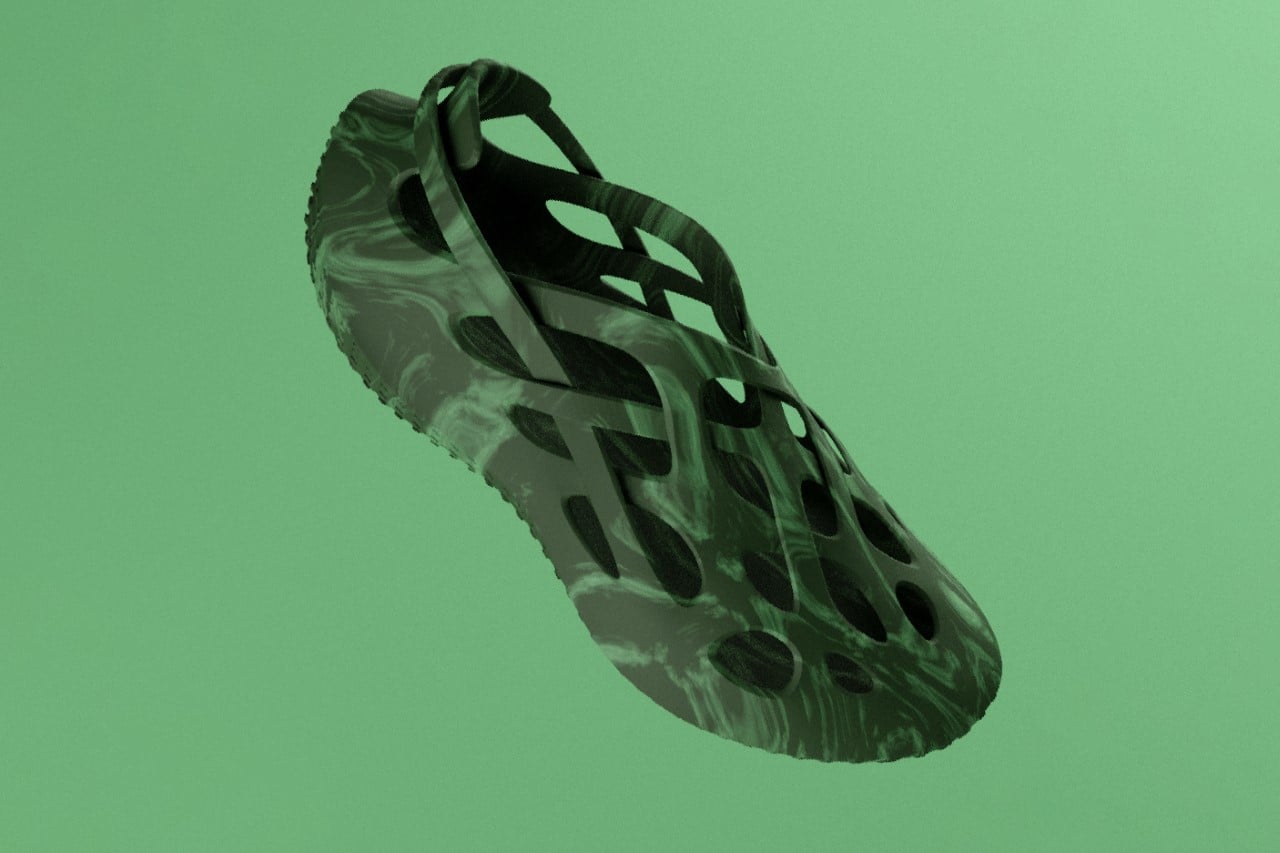
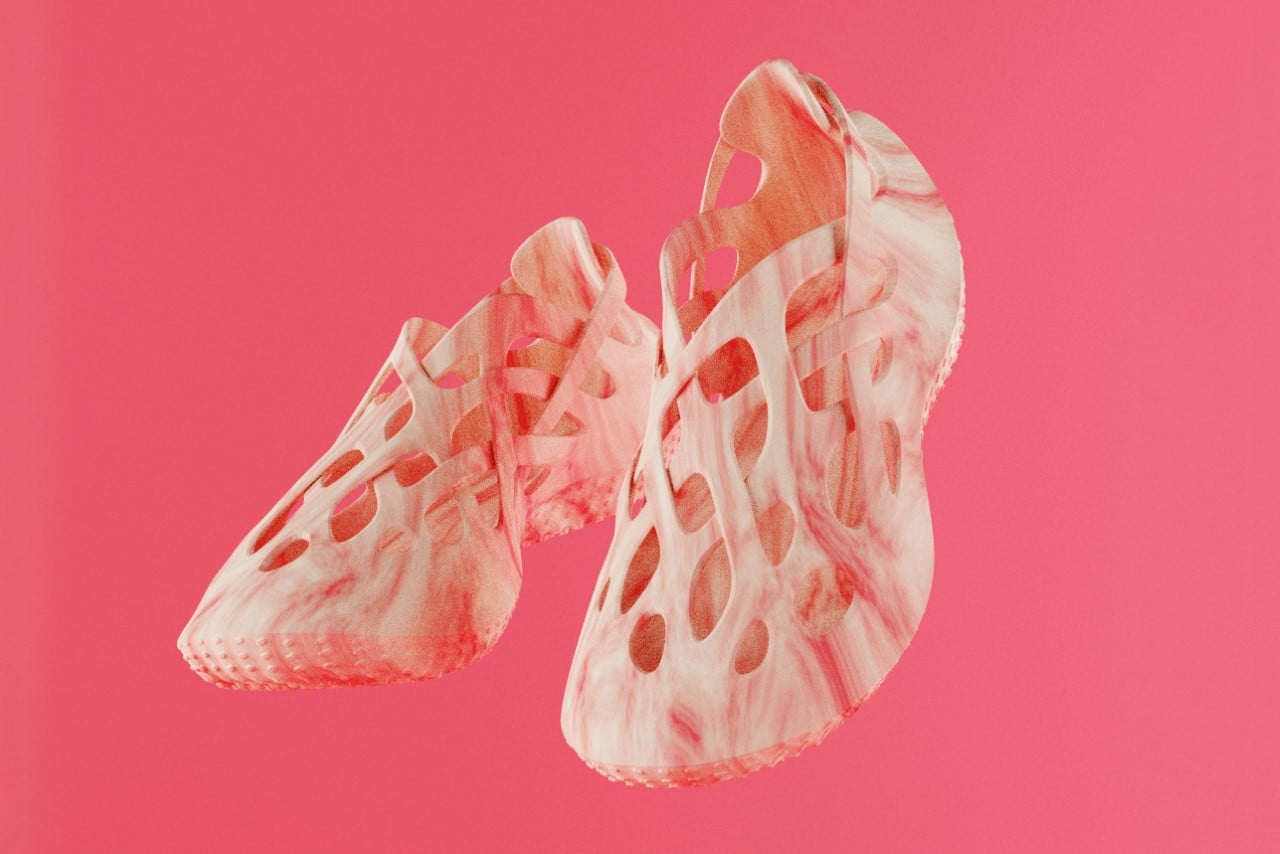
Designed as a passion project, Daniel Shirkey’s Earth Moc was created as a potential recovery shoe for hikers. Shirley’s prime objective was to figure out how one single material could fulfill every aspect of a shoe’s experience from its flexibility to comfort, while giving your feet the support they need after a tough hike. Shirley’s design even comes with treads on its underside that additionally allow you to do some light hiking in, giving the right amount of traction required on moderately uneven surfaces and dirt paths.
Why is it noteworthy?
The highlight of the Earth Moc is its design. The entire shoe is made from a single material, sort of like a Croc, except it features interwoven elements that provide the stretch and flexibility of a conventional sandal. While most single-material shoes are made by injection molding of an elastomer, Shirley’s concept goes down a different route. The interwoven elements are practically impossible to mold in a traditional injection mold, which is why Shirley resorted to 3D printing. Prototypes of the shoe were made by Switzerland-based Sintratec, a 3D printing and solutions company. Inspired by intertwining roots and vines, Shirley’s shoe was 3D printed on the Sintratec S2 system with flexible TPE.
What we like
- Made from a single material
- Inspired by intertwining roots and vine
What we dislike
- It’s not available yet!
5. Novum 3D
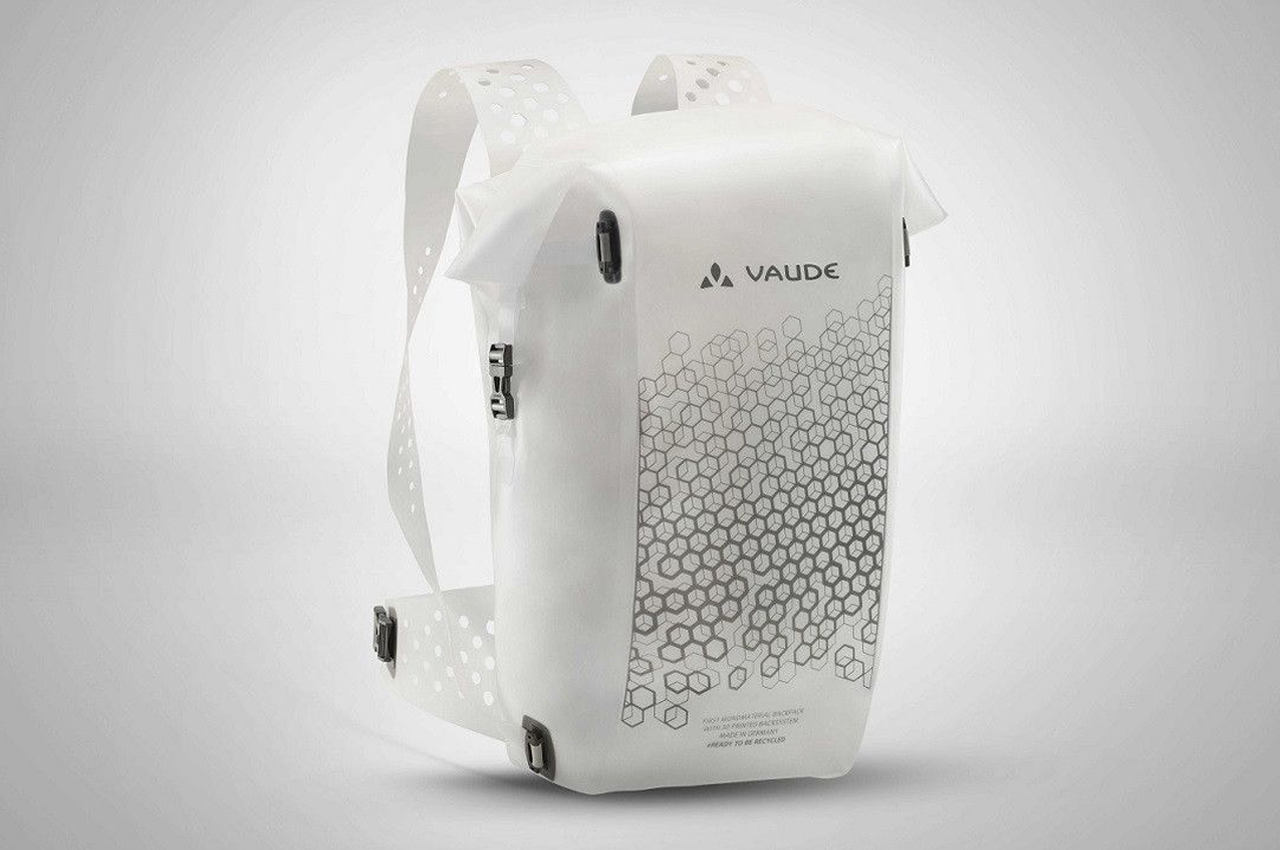
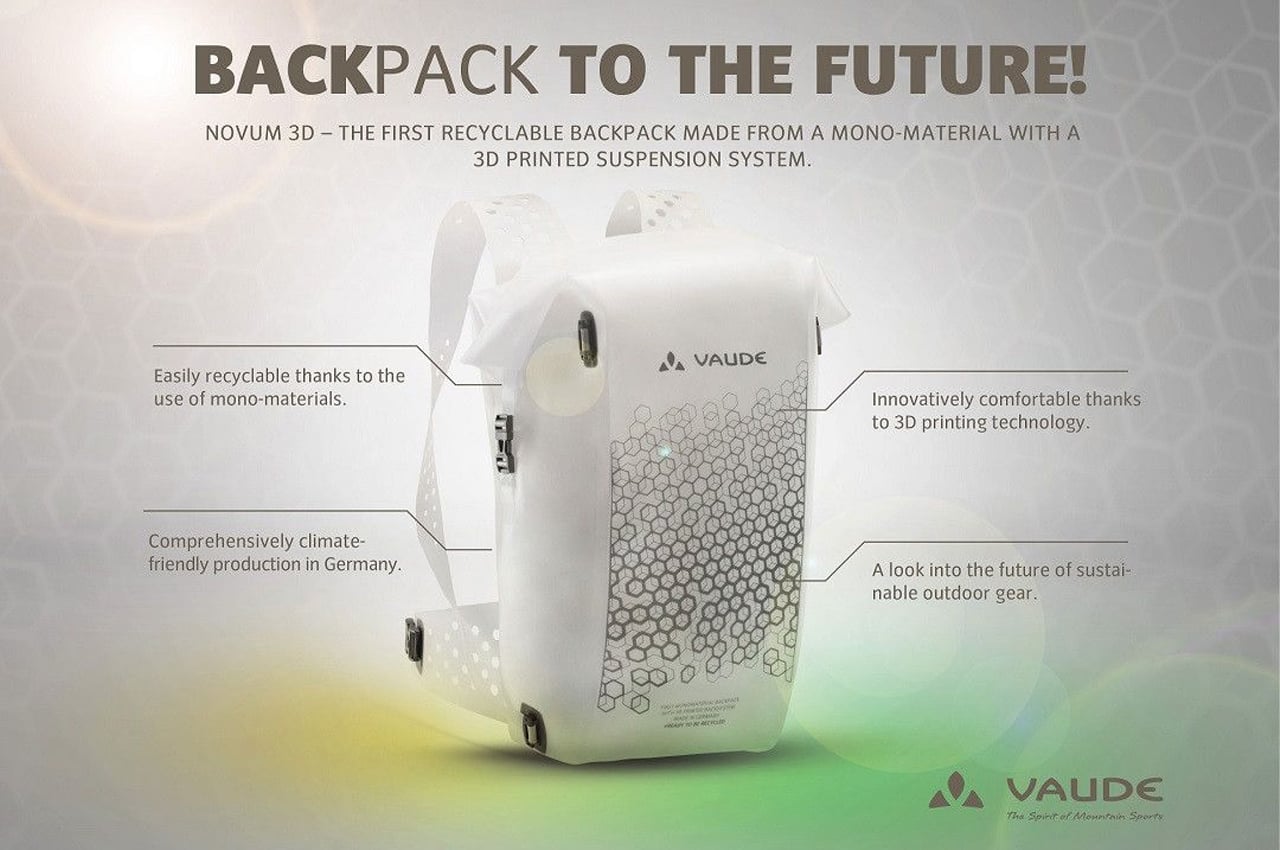
Vaude is an outdoor mountain sports brand that develops sustainable outdoor gear because they want younger generations to be able to enjoy the outdoors in the same ways we’ve enjoyed it. Supplying the clothing, accessories, and equipment necessary to take on your next hike, camping trip, or forest bath, Vaude is committed to a responsible and sustainable design process from start to finish and back again. Using innovative 3D printed back pads, Vaude’s latest product is a fully recyclable backpack made from mono-materials.
Why is it noteworthy?
Dubbed Novum 3D, Vaude’s outdoor backpack features a honeycomb construction that ensures maximum stability while keeping the materials needed for production to a minimum. Each component of the backpack, from the straps to the packsack and even the honeycomb back pads is 3D printed from 100% thermoplastic material (TPU). Each component of the Novum 3D is also fully removable and recyclable, taking a big step towards a circular economy.
What we like
- Sustainability remains at the forefront of Vaude’s design principles
- This type of construction offers us the highest stability with the least amount of material
What we dislike
- No complaints!
6. Alive
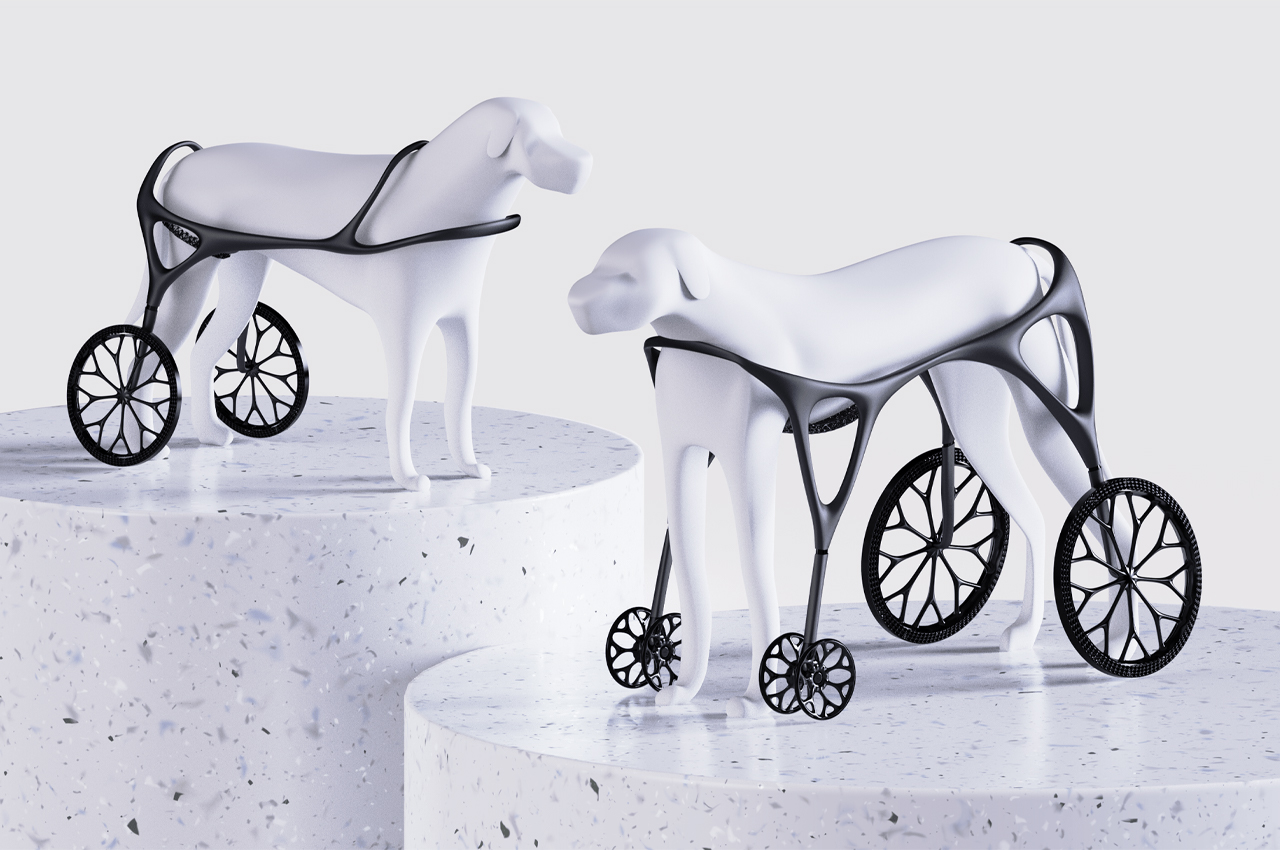
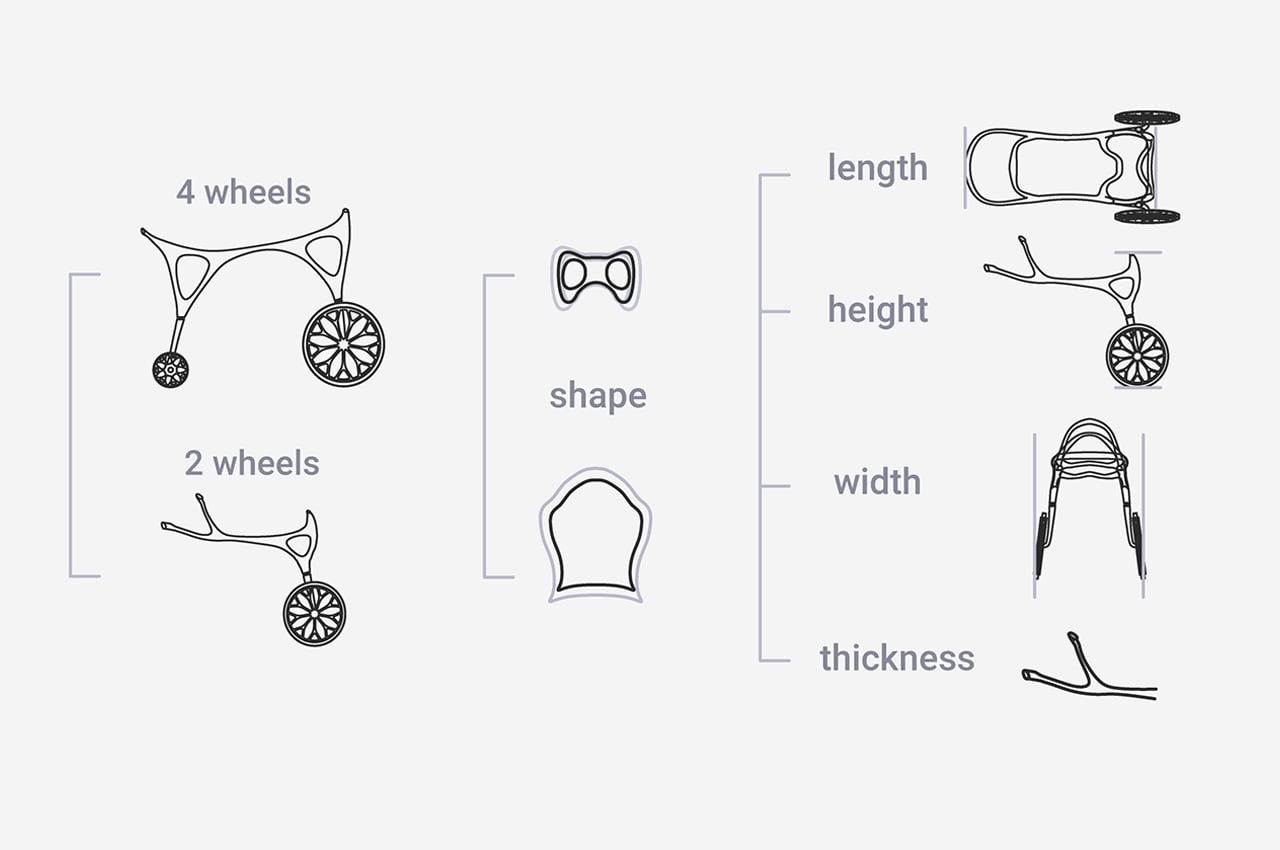
Alive is a customizable, 3D-printed wheelchair for dogs suffering from joint-related body ailments. As our dogs grow older, age-related body issues, such as arthritis, hip dysplasia, and paralysis make it difficult to enjoy life. When even moving feels hard, aging dogs are less likely to spend time with family members and take care of bodily needs, leading to psychological stress.
Why is it noteworthy?
While technical accessories and equipment do exist to offer some relief, antiquated building methods make it hard for dogs to adapt to wheelchairs and other assistive appliances. Revolutionizing the canine assistive appliance game, industrial designer Martin Tsai conceptualized a wheelchair for dogs called Alive that can be 3D printed to fit your dog’s body data and needs.
What we like
- It’s a one of a kind design that provides aid to dogs suffering from joint-related body ailments
- Uses 3D scans of the dog’s body data to generate an optimized wheelchair for each dog
What we dislike
- No complaints!
7. Benedetto’s 3D-printed plastic accessory
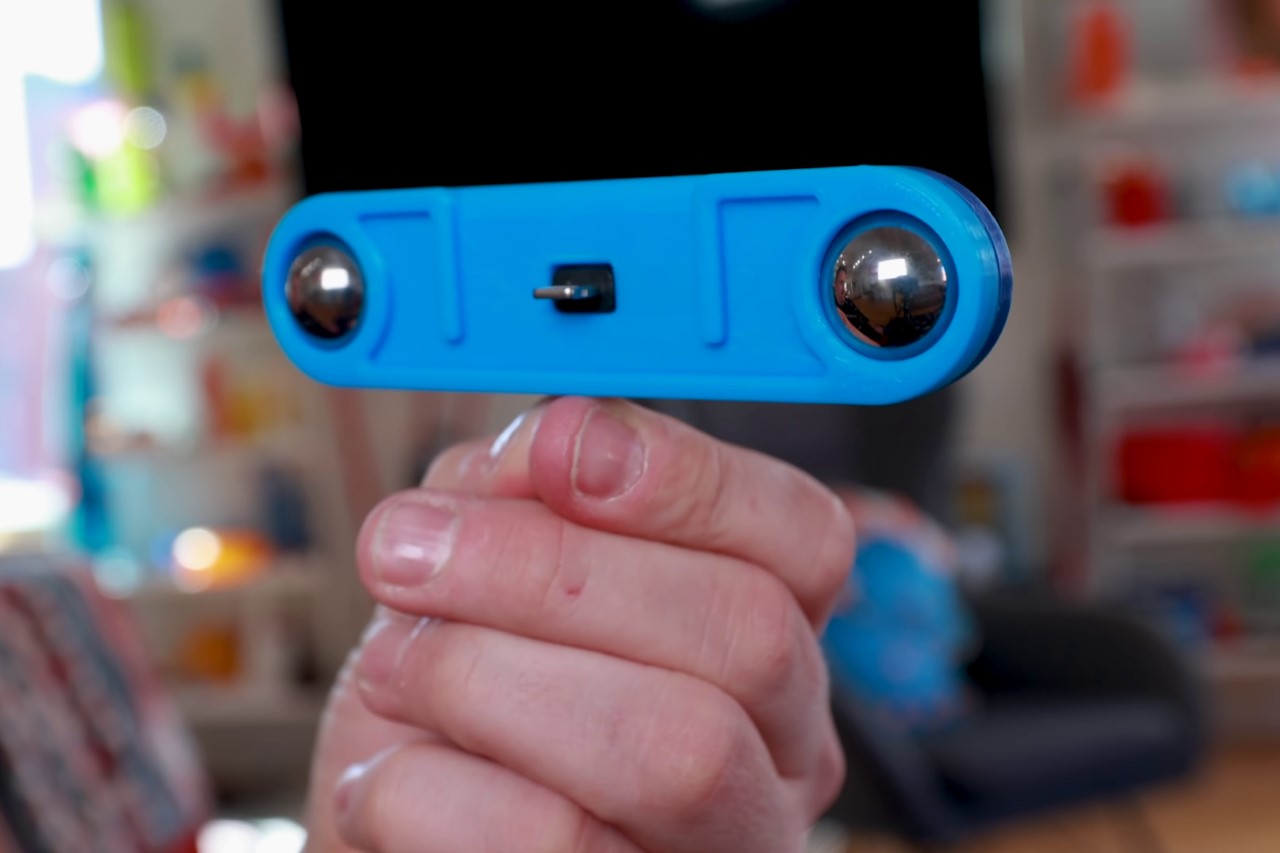
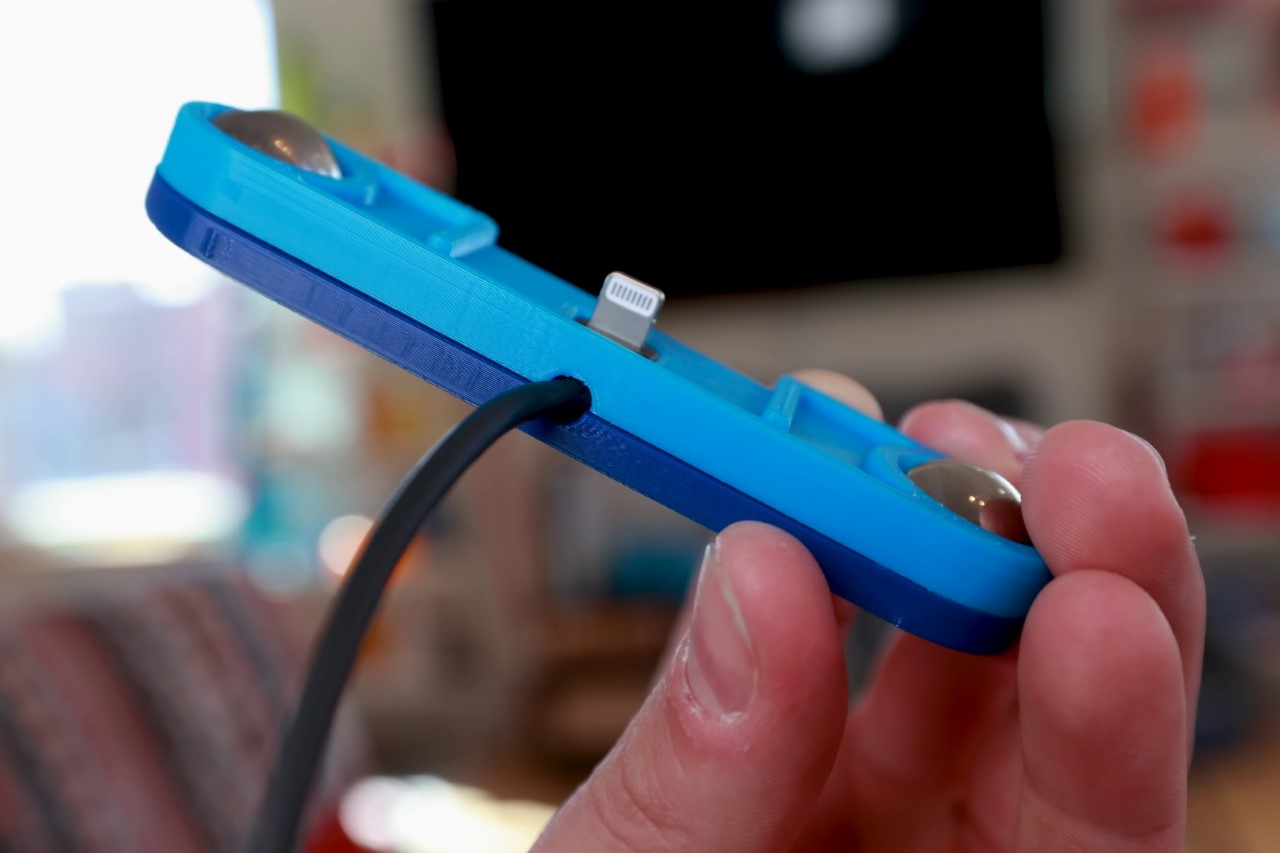
Widely touted as Apple’s biggest design flaw, the company’s Magic Mouse is infamous for needing to be flipped over in order to charge it, making it entirely useless in the process. It’s inelegant, and the only (logical) explanation seems to be the fact that Apple doesn’t want you using the mouse while you charge it, but Benedetto has a clever solution that defies it all… well, sort of.
Why is it noteworthy?
Having faced this problem too, Benedetto decided to tackle it head-on, or rather, underside-on, because that’s where the charging port is located on the Apple Magic Mouse. Benedetto’s solution just involved bending the wire and introducing a makeshift trolley that still allows you to slide the mouse around your mousepad/desk WITH the bent wire. Simple, isn’t it?
What we like
- Innovative + unique effort
- Made from 2 pieces of 3D-printed plastic
What we dislike
- The solution didn’t work out in the end
8. The Sopp Table Lamp
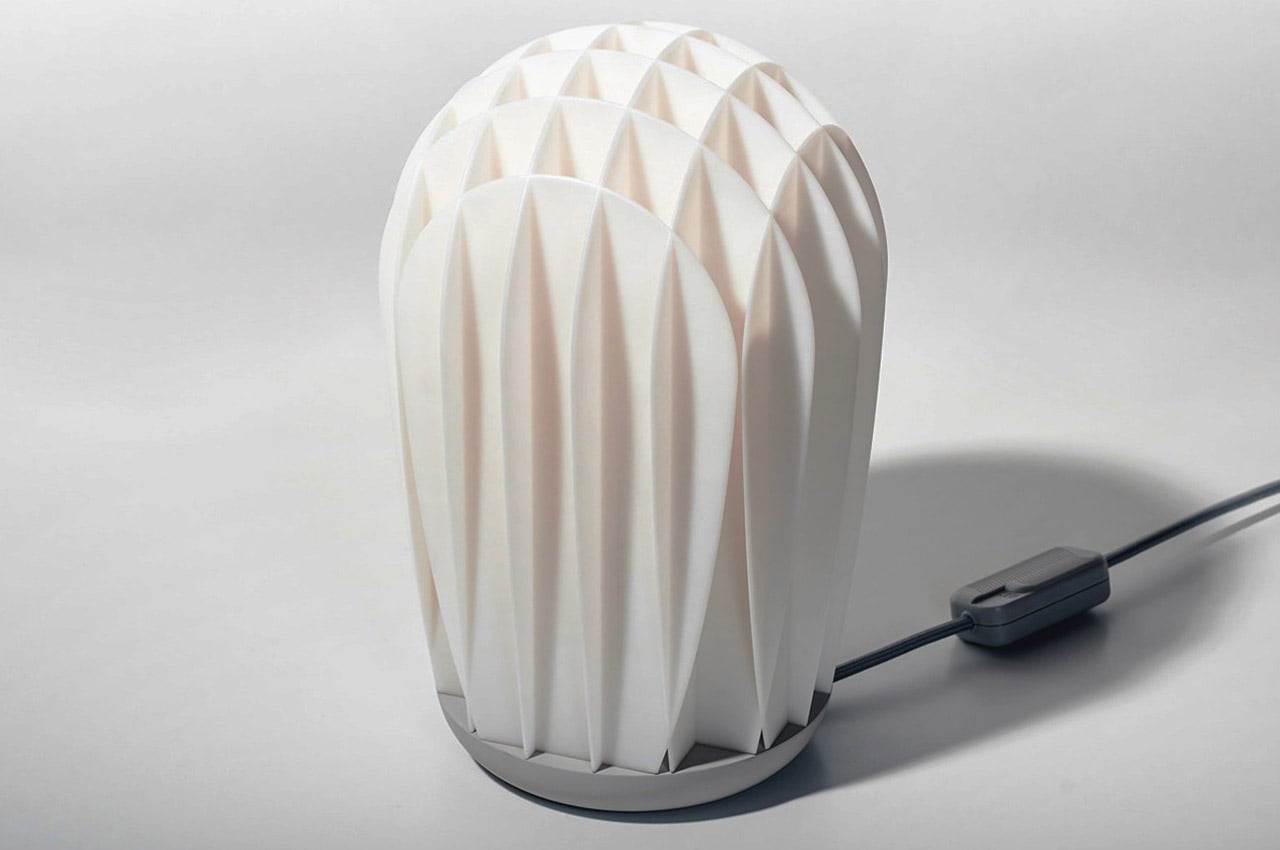
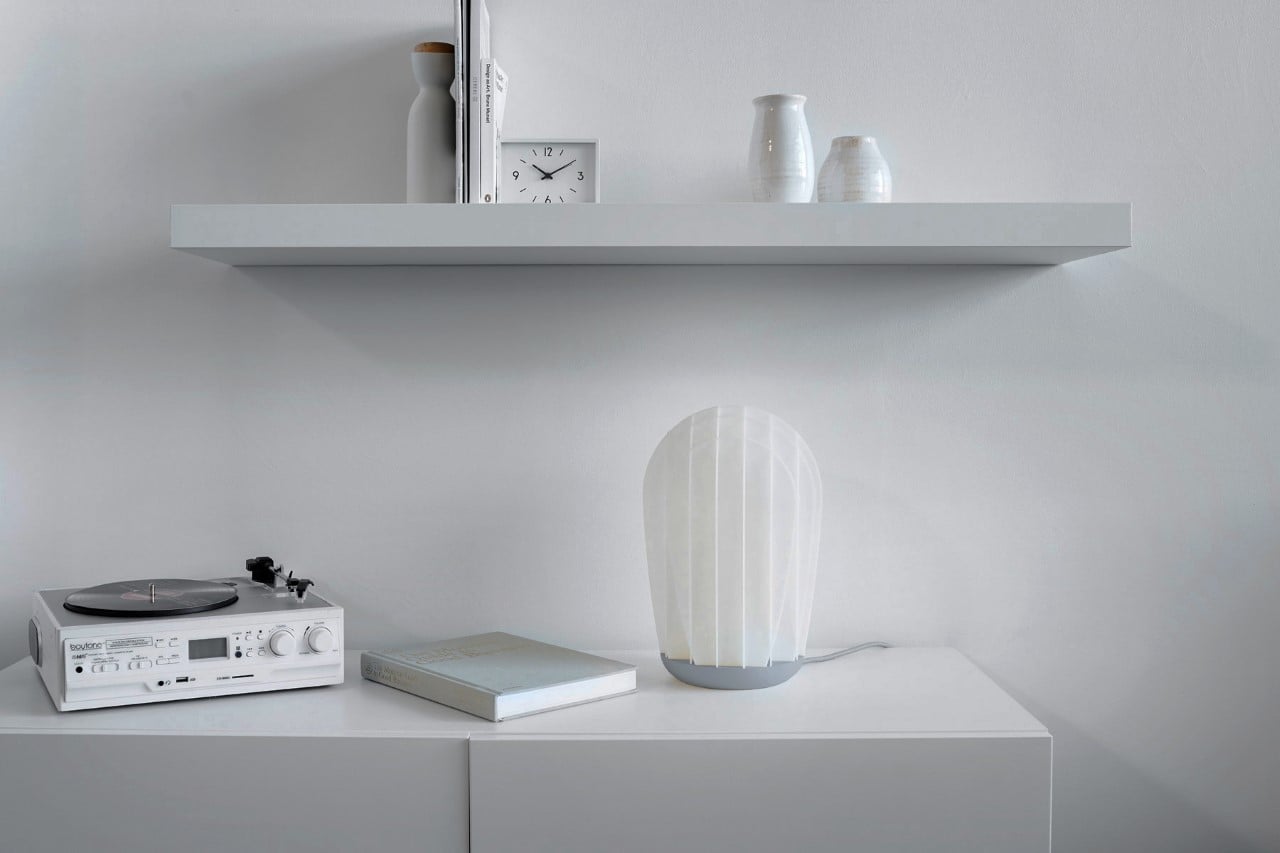
Looking quite like some Zaha Hadid-inspired architecture on your table, the Sopp table lamp by Max Voytenko for Gantri uses Gestalt’s visual laws to look like it has mass, while the lamp itself is made from what seems like entirely crisscrossing 2-dimensional surfaces. The Sopp is a paradoxical masterpiece, inspired by seemingly opposing disciplines: natural forms and modern architecture”, Voytenko writes. “Who knew minimalism could be so mesmerizing?”
Why is it noteworthy?
Kyiv-based Voytenko’s design philosophy of ‘less is more’ shines through wonderfully with Sopp. There’s no voluminous mass to the lampshade. It’s entirely lattice-based, but still has its own 3D mass shining through the twelve 2D planes that intersect each other. The abstract parachute-shaped design rests on a flat base, which houses the lamp’s internal LED light along with its electronics. Both the lamp and base are 3D printed at Gantri’s San Francisco factory using their proprietary Gantri Plant Polymer, a special bio-based material that has a signature matte finish that gives each Gantri lamp a premium appeal.
What we like
- There’s no voluminous mass to the lampshade
- Entirely lattice-based
What we dislike
- Seems quite delicate, as if it could easily be damaged
9. Greenfill3d
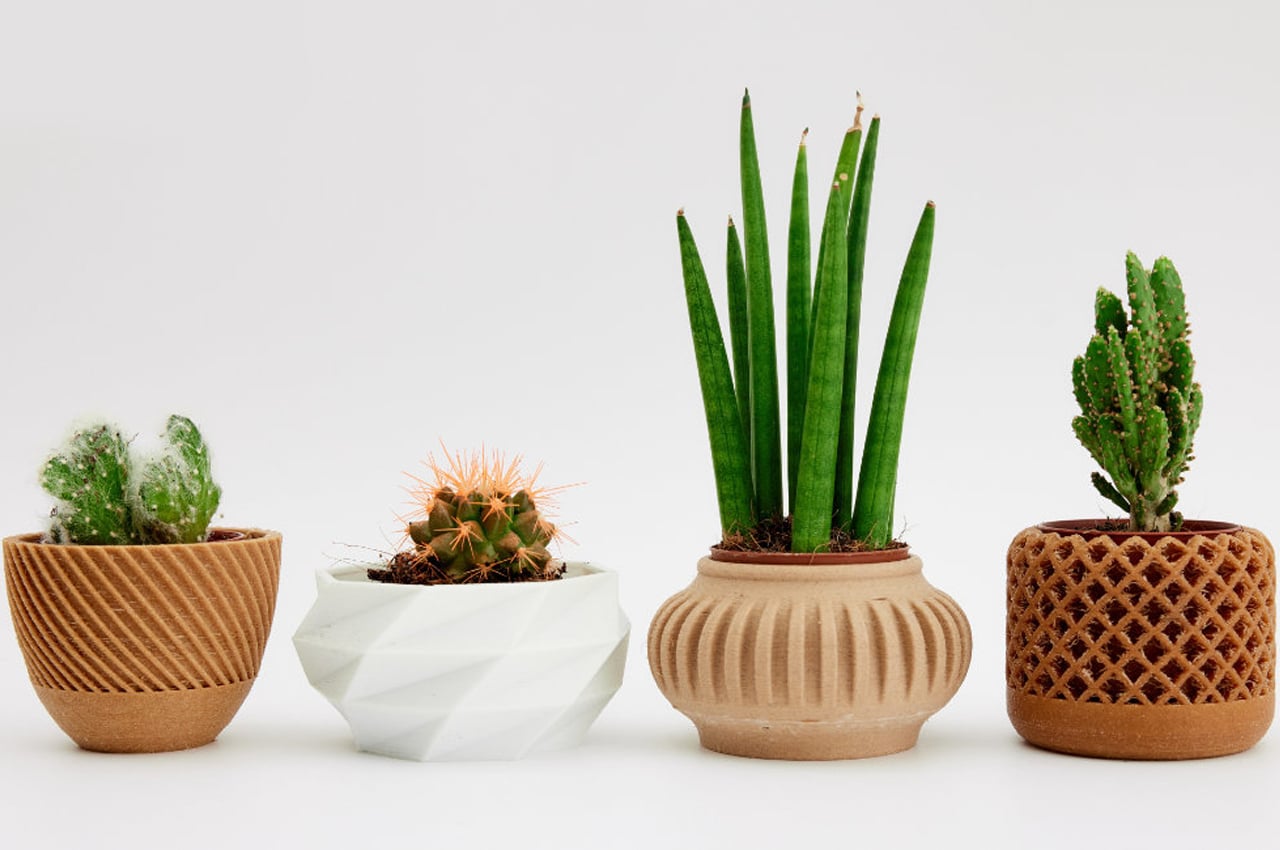
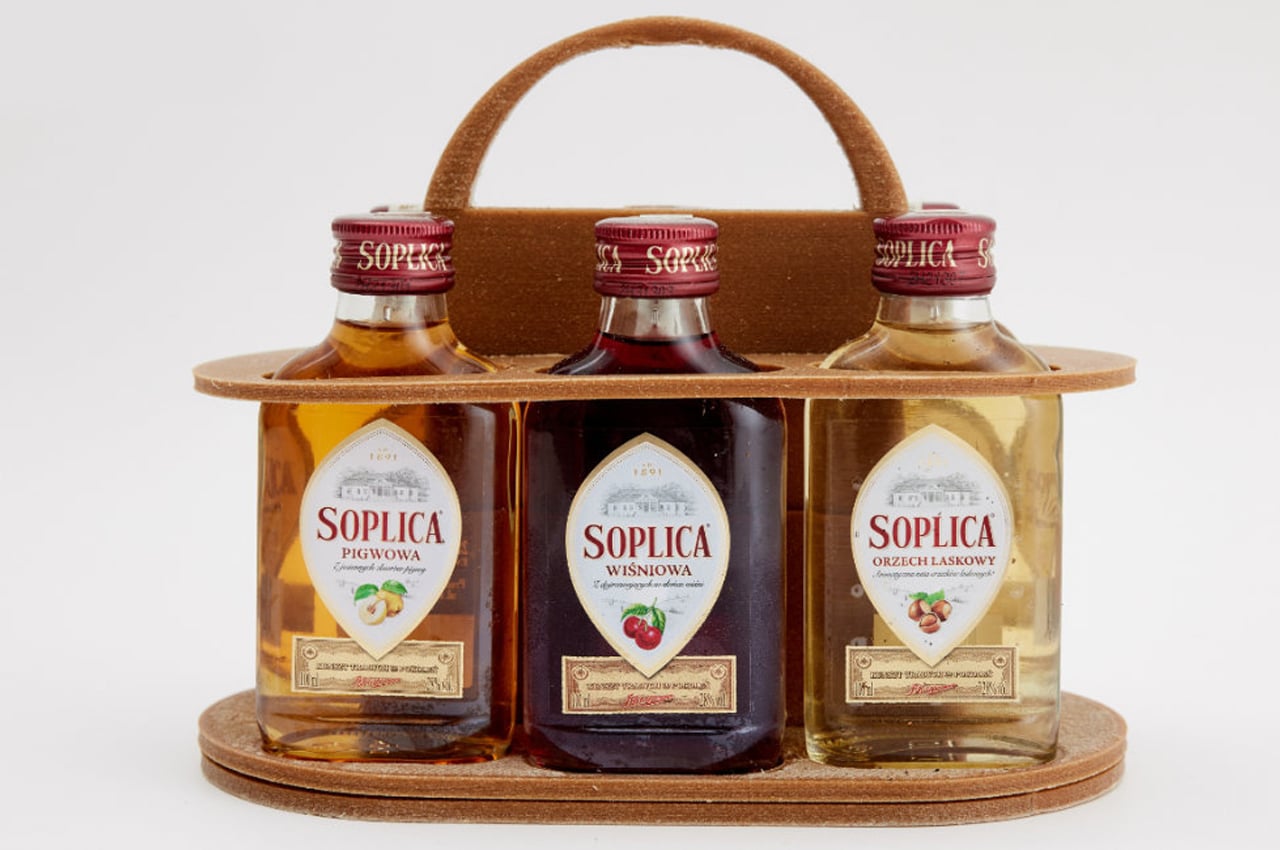
Greenfill3d is a Polish home goods and furniture company that uses wheat bran waste to 3D print home goods items like storage compartments and advertising racks. One of the easiest ways we can reduce our personal carbon footprint is by taking a look at the build of items we use on a daily basis. A closer look reveals that many of the products we surround ourselves with are made from materials that aren’t so great for the landfill. Designed for obsolescence, most of these plastic-based products end up in landfills where they might remain for years to come.
Why is it noteworthy?
Hoping to change the way we consume home goods and everyday products, the Polish company Greenfill3d produces items that are made from biodegradable or bio-compostable materials in accordance with the ideas of zero-waste and the circular economy.
What we like
- Each item that comprises Greenfill3d’s home goods collection is composed of multiple parts that are 3D-printed individually
- Made from sustainable materials
What we dislike
- No complaints!
10. Cullan’s 3D-printed shoes
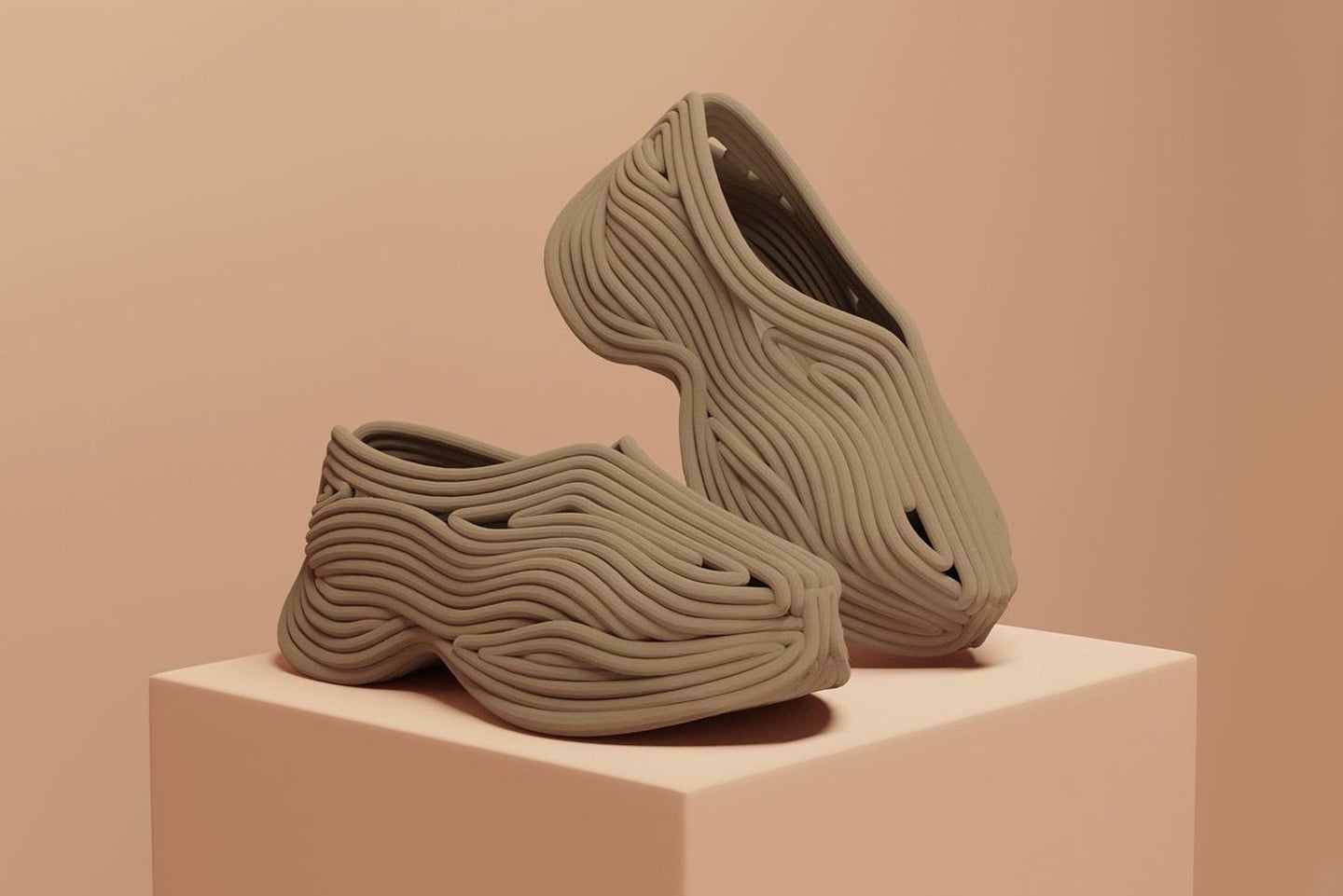
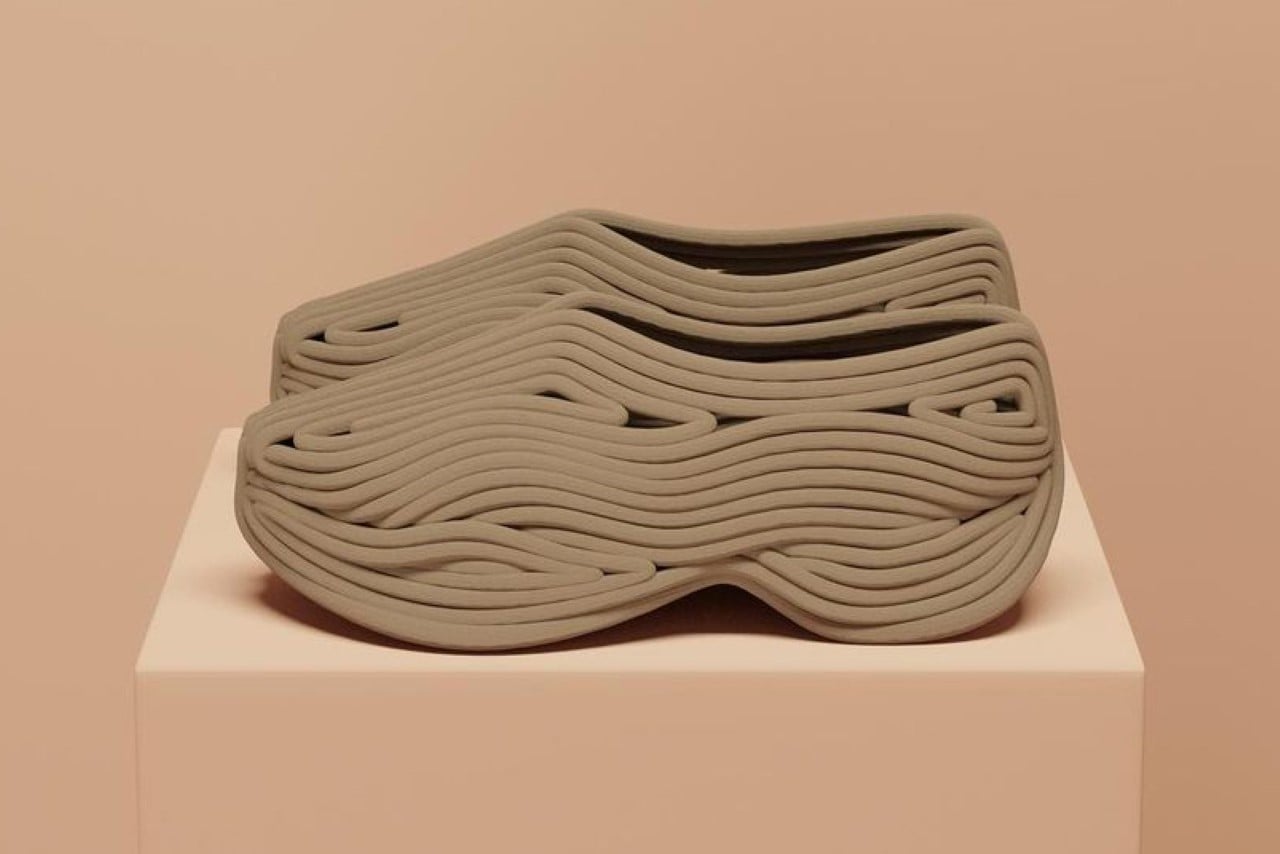
Designed in the metaverse by Cullan Kerner, the shoes embody an aesthetic that’s best described as ‘oddly refreshing’ and the reason is because it doesn’t stick to the constraints of regular shoe design intended for mass production. The process with shoe design is standardized to a great degree – you’ve got pre-set sizes, materials that are readily available, dies for cutting/molding these materials, and processes like stitching or gluing that bring them together
Why is it noteworthy?
Cullan’s design process, however, is completely different. For starters, the shoes were made entirely in Gravity Sketch, a free VR software that allows you to design directly in a 3D space. Cullan designed the shoes almost like a sculptor makes an art piece, creating in 3D space. The shoes are made for 3D printing – a process that still hasn’t been mass-accepted by the shoe industry. The idea is simple – Cullan’s model gets imported into a 3D printing software, and the printer meticulously builds the design layer by layer using a single flexible elastomeric material.
What we like
- Each shoe can be designed to fit you perfectly, and they’re all made to order
- Available as NFTs
What we dislike
- They’re not in production!

